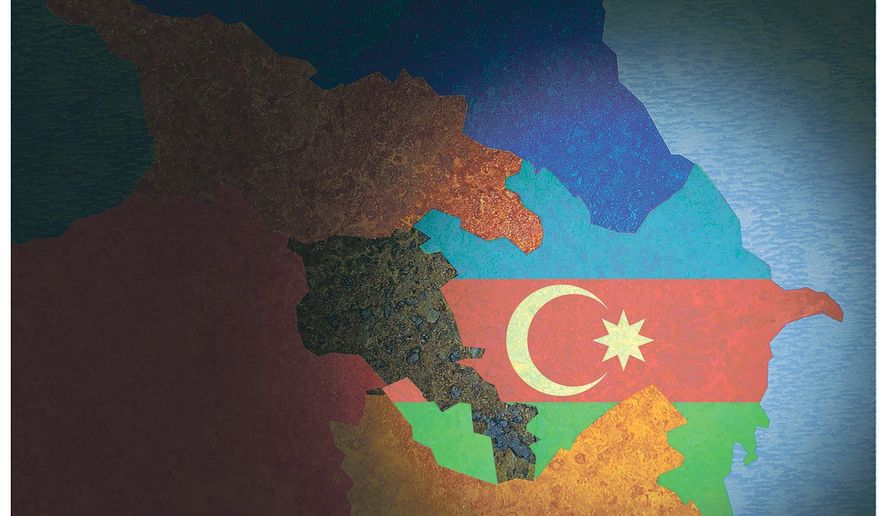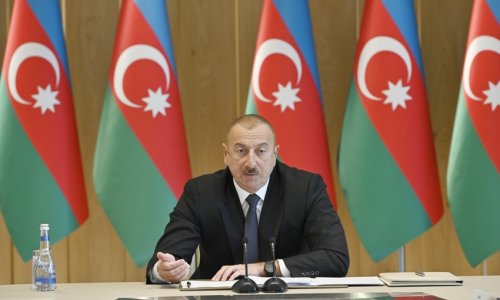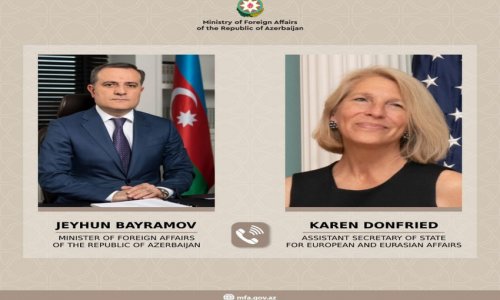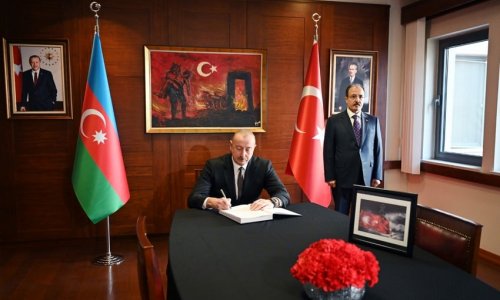By Alexander Murinson
Last week, the Obama administration took a positive step in dealing with the United States’ lack of real friendships and genuine alliances in the Muslim world. It acknowledged the critical part Azerbaijan plays in the interdiction of nuclear and radiological materials as a part of the global nonproliferation effort. According to Novruz Mammadov, deputy head of Azerbaijani presidential administration and chief of the administration’s foreign relations department, Azerbaijan President Ilham Aliyev was invited to attend the fourth Nuclear Security Summit in Washington, D.C., to be held in March. This highlights the indispensable role this small nation on the Caspian Sea plays in U.S. national security.
Largely due to Azerbaijan’s secular constitution, its close ties with the United States, the European Union and Israel, coupled with an estimated 30 million ethnic Azerbaijanis living in Iran, Tehran views the growing economic strength and increasing military might of Azerbaijan as an existential threat. In similar terms, Azerbaijan’s neighbor to the north, the Russian Federation, is resurgent, irredentist and annexing other nation’s sovereign territory at will. To wit, Azerbaijan borders a hostile and militant vassal of Russia in Armenia to the west.
Moving forward, Baku needs to receive consistent and clear messages of support and reassurance from Washington and not criticism in this hour of utmost regional tensions. As Taliban and Islamic State forces are on the roll just across the Caspian Sea, it would be prudent to have a state that is firmly committed to a strategic understanding with the West. Consistent demonstrations of unambiguous support from the United States will assure Baku that a great power is watching its back and will provide breathing room while Baku aligns its domestic policy with its long-term interests, namely to become to a model Muslim democracy.
Azerbaijan is forced to navigate between Scylla and Charybdis, namely not very peaceful neighbors — Russia and Iran. The natural ability of President Aliyev to sail these dangerous waters was provided an additional boost by the strong showing of his Yeny Azerbaycan (New Azerbaijan) Party in recent Parliamentary elections. The majority of Azerbaijan’s population realizes that there is no alternative to the current leadership if the country seeks to preserve its stability and avoid being swept into a maelstrom of Islamist radicalism that seized so many Muslim-majority nations. In particular, Azerbaijan’s electorate is scared of a replay of the Arab Spring. Yeny Azerbaijan delivers tangible benefits both to the urbanites — pro-Western, liberal, young and middle class — and to the more conservative population in rural areas.
As a side note, while no Western government sent official observers to oversee Azerbaijan’s parliamentary elections in November, Israel sent a high-level delegation that included former Foreign Minister Avigdor Lieberman and Michael Oren, former ambassador to the United States and currently a member of the Knesset. This was a clear sign of recognition of the Azerbaijani government’s outstanding ability to preserve stability in this volatile region. This observer mission also had a diplomatic aspect, namely, to acknowledge the importance of Azerbaijan as a Muslim-majority state that maintains its secular constitution despite tremendous pressure.
In the context of rapidly shifting geopolitical reality in the Near East, the position of Azerbaijan becomes increasingly critical for the West, as the main reliable conduit of energy resources for Europe. During his April 20 visit to Baku, Iranian Defense Minister Hossein Dehqa proposed selling arms to Azerbaijan. The Iranian minister added that Tehran and Baku must improve defense and military cooperation to form a "strong and influential” regional alliance in the light of deterioration of regional and international security situations as well as the spread of terrorism. His Azerbaijani counterpart, Lt. Gen. Zakir Hasanov, politely called for the establishment of joint commission for defense-military cooperation by Iran and Azerbaijan.
Against this background, Moscow is lavishing compliments on Baku and is ready and willing "to deepen and expand the brotherly ties” with Azerbaijan. This rhetoric should not create a blissful picture.
Azerbaijan has repeatedly demonstrated its ability to maneuver between different power centers and protect the country’s self-sufficiency and independence. Under Mr. Aliyev’s steady hand, this line will continue. Otherwise, the West will have to significantly revise its energy plans and the East-West corridor projects. Europe can ill afford a dramatic change in its energy security architecture. In particular, at such a critical juncture in reducing Europe’s dependence on the Russian "energy dominion,” a dramatic shift will be economically costly and unrealistic. If Baku is not convinced of the reliability of Western support, it is likely to drift into Moscow’s orbit.
Pragmatic U.S. leadership at this time is critical to uphold past achievements and to preserve well-crafted American policy in the Caspian region. President Aliyev’s attendance and participation with President Obama at the fourth Nuclear Security Summit puts the United States and Azerbaijan squarely on that road together.
• Alexander Murinson is a senior fellow at the Begin-Sadat Center and Bar Ilan University.
(Washington Times)
www.ann.az
Follow us !











